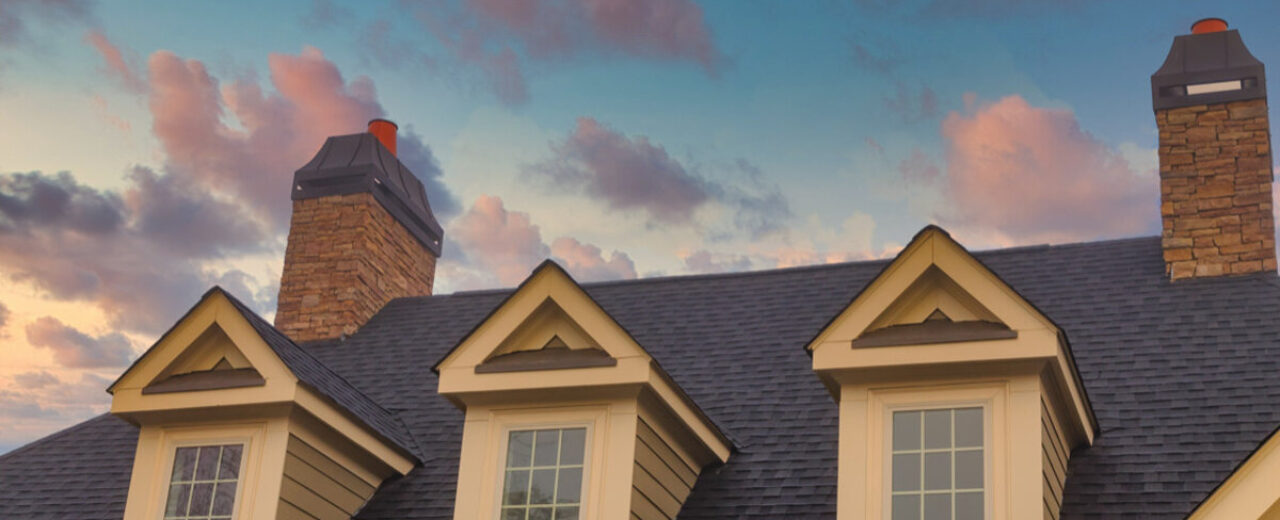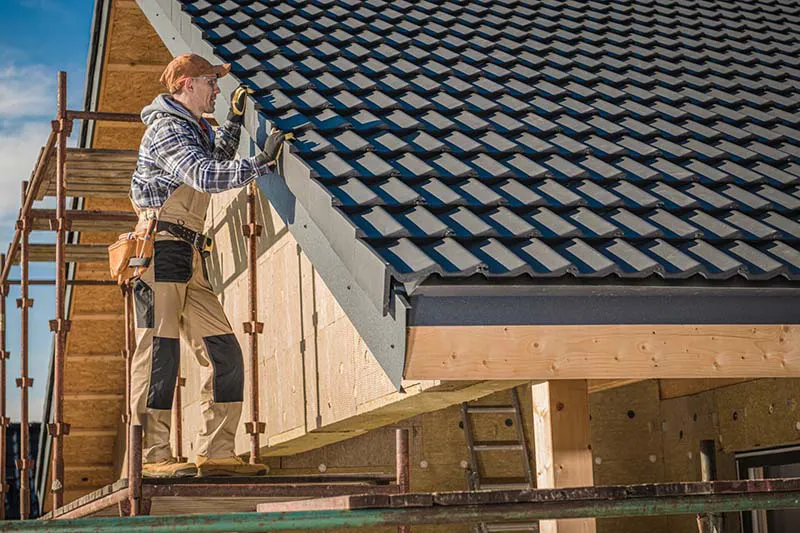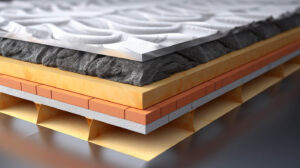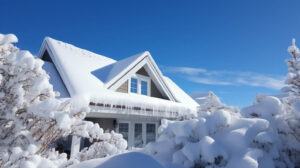Metal, tile, and asphalt are all energy-efficient roofing options. When it comes to residential and commercial buildings, your roof plays a pivotal role in enhancing energy efficiency.
Energy-efficient roof systems offer a range of benefits, from reducing energy consumption and lowering utility bills to minimizing environmental impact and improving indoor comfort.
Why is Energy-Efficient Roofing Important?
Energy-efficient roofing helps minimize the energy required to cool and heat your home. By reflecting sunlight and reducing heat transfer, energy-efficient roofs can lower the demand for air conditioning during hot seasons and reduce heating needs during colder months.
Energy-efficient roofs also often have properties that enhance their durability and resistance to weathering. They can withstand harsh UV rays and temperature fluctuations. This means a longer lifespan for your roof, reducing the frequency of roof replacements.
Buildings with energy-efficient features, including roofing, tend to have higher market value. Potential buyers or tenants appreciate the long-term cost savings, reduced environmental impact, and improved comfort associated with energy-efficient buildings. Energy-efficient roofing can positively impact the overall value and marketability of a property.
Metal Sheets
Metal has a high Solar Reflective Index (SRI). This score is the ability of your roof to reject solar heat and release any heat it has absorbed. Metal roof sheets can also be enhanced with a special coating.
Stone-Coated Steel Roofing
Stone-coated steel, for example, enhances the energy efficiency of the metal roof sheet. The coating is often made of granules that reflect a portion of the sun’s rays. It also prevents excessive heat build-up and keeps your home cooler.
Steel is a good heat conductor, while the stone coating acts as an insulating layer, reducing thermal conductivity. Stone-coated steel is thermally efficient because it prevents heat transfer from the roof to the interior, meaning a more stable indoor temperature.
Stone-coated steel also offers durability and great insulation. Combining the strength of steel and stone, this material has a long lifespan and resists warping, cracking, and fading. A long lifespan means that the insulation and energy-efficient properties last longer.
Tile Shingles
Slate, clay, and concrete are all energy-efficient material options for your home. Tile shingles are often pre-treated to maximize their heat reflectivity. They can also be treated with a reflective coating after installation. Lighter-colored tiles have a higher SRI and lower heat absorption.
Tile shingles offer natural ventilation. They allow airflow under the tiles, which helps release heat. They also have a high thermal mass. That means they absorb and store heat during the day and slowly release it at night. This process helps regulate indoor temperatures. The thickness and composition of tiles mean they reduce heat transfer and offer great insulation.
Asphalt Shingles
Asphalt shingles are the most common roof option but historically have not been considered energy-efficient. Traditionally, they are one of the most non-reflective and heat-absorbent options. But modern technology and new production methods have become very efficient.
Many asphalt shingles have solar-reflecting granules that increase the SRI value. Owens Corning, a company we are certified with, is one example. They have a “cool roofing” collection that includes shingles with a reflective value of over 20. A “cool roofing” means the shingles are designed to reflect more sunlight and absorb less heat. These shingles are tested and certified to meet specific efficiency standards.
Let The Roofing Center Help You Find The Best Energy-Efficient Roofing
The Roofing Center is equipped to install a variety of roofing options, including stone-coated steel and asphalt roofing. We want the best products for our customers, including finding manufacturers who offer energy-efficient solutions. So, if you need a roof replacement for your Intermountain home, contact us to learn more about energy-efficient roofing options.







